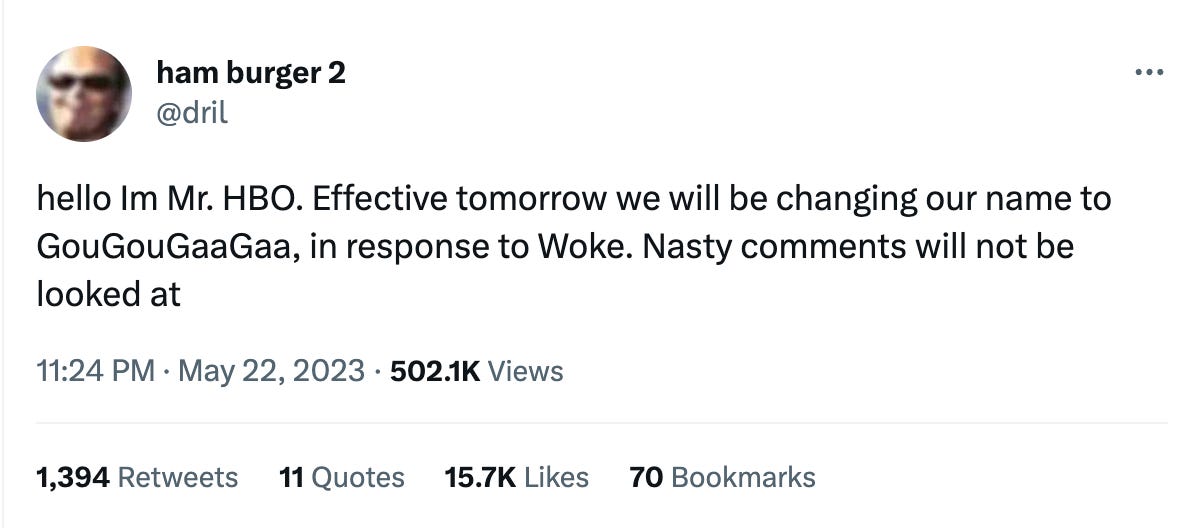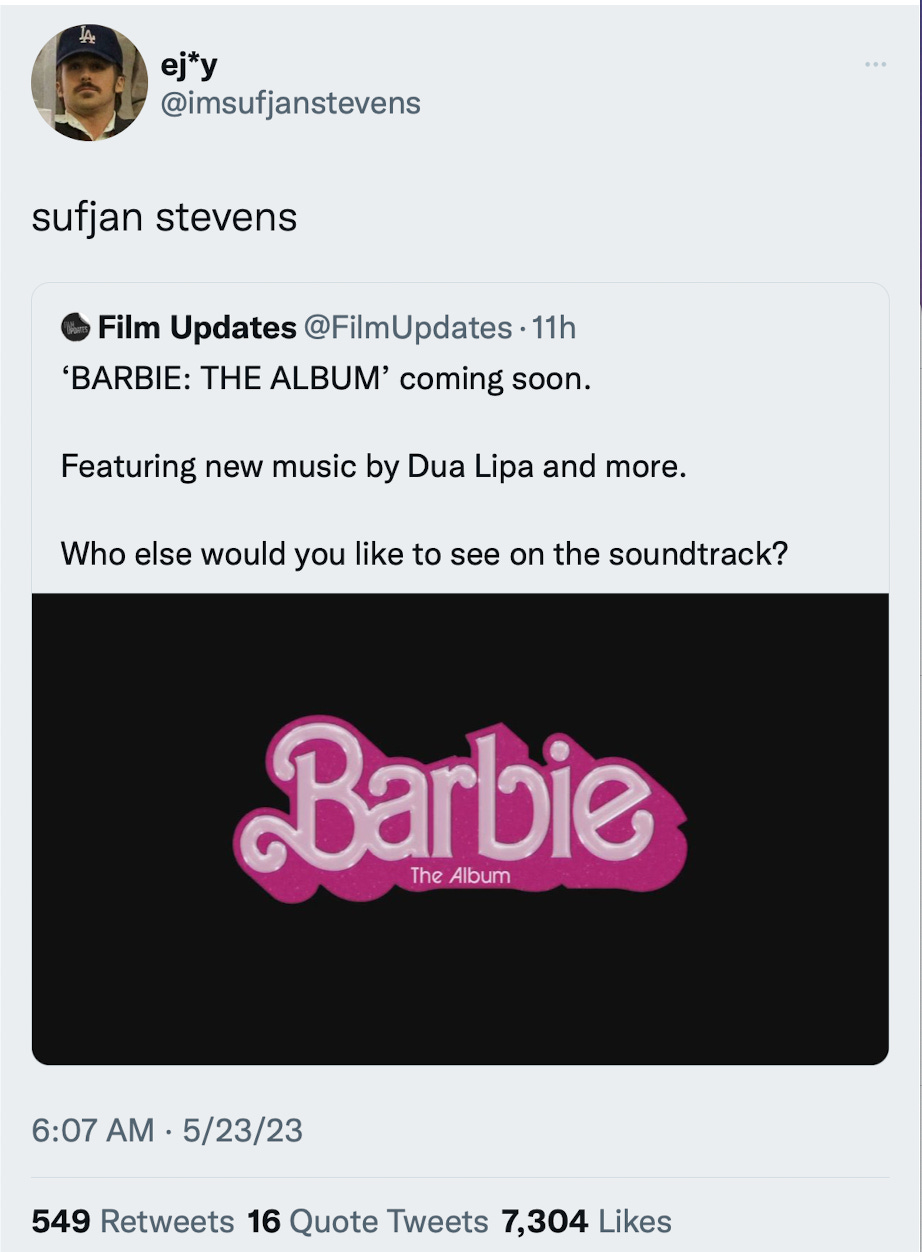The surgeon general's warning is a wake-up call for social networks
Here’s a second free edition of Platformer this week: a look at an urgent warning from the surgeon general that begins to answer the essential question of how social networks affect children. Last week, we made every edition of the newsletter free to maximize the number of people who engage with issues around AI and journalism. But it’s paid subscribers who make this work possible — and they also get all our scoops first. Ready to contribute something to the community? Subscribe now and we’ll send you the link to join us in our chatty Discord server.
The surgeon general's warning is a wake-up call for social networksA growing body of evidence suggests that social products pose significant risks to teenagersFor many years now, a group of researchers and activists have warned about the potential dangers of children using social networks. The warnings resonated with me emotionally, since so many people I know — young and old — have struggled with their own relationships to apps like Facebook, Instagram, and TikTok. It seems logical that what many people experience as a kind of icky feeling after too much scrolling manifests as something much more serious in others — particularly in young people. Anxiety over this state of affairs has contributed to a significant uptick this year in state-level regulation aimed at getting kids off their phones. (The other reason, of course, is a total failure of Congress to act.) Utah just passed a law preventing children under 18 from using social networks without their consent. Arkansas considered something similar. Montana just banned TikTok altogether. I’ve long been sympathetic to the idea that young people need greater protections from the social networks they use daily. But I’ve also had my doubts about how aggressively we ought to compel them to intervene. Data on the relationship between children, teens, social networks, and mental health has been slow in coming, limited in scope, and contradictory in its findings. Looking at the research that has trickled out so far, I have more than once found myself throwing up my hands in confusion. Recently, though, I’ve begun to feel like we’re making real progress on understanding how social networks affect young people. For too many children, frequent use of social products really does seem bad for them. And the research now appears robust enough that lawmakers can be confident in demanding more from the companies that produce them. That was my main conclusion today after reading the surgeon general’s advisory today on social media and youth mental health. Over a brisk 19 pages, US Surgeon General Vivek Murthy and his team synthesize more than a decade of research into risks posed by social networks, and conclude that the potential for harm is significant. While the report also makes welcome acknowledgement of the benefits social networks have for young people, it also highlights specific areas where action from social networks, lawmakers, and parents are long overdue. “Nearly every teenager in America uses social media, and yet we do not have enough evidence to conclude that it is sufficiently safe for them,” the surgeon general writes. “Our children have become unknowing participants in a decades-long experiment. It is critical that independent researchers and technology companies work together to rapidly advance our understanding of the impact of social media on children and adolescents.” The full report is well worth reading in its entirety. But several aspects of the surgeon general’s findings are worth calling out. One, children are starting to use social media too young. The report found two in five children have begun using social networks between the ages of 8 and 12 — a deeply vulnerable time where it seems unlikely to me that the potential benefits outweigh the risks. And this comes despite the fact that companies’ own terms of service typically forbid children under 13 from using them. Platforms really ought to do more to keep young children off their platforms — and not openly court them with cynical growth-hack products like Messenger Kids from Meta. Two, we’re learning a lot about what kinds of children are at higher risk of harm from social networks. It includes adolescent girls; kids with mental health issues; kids who have been cyber-bullied; kids with body image issues and disordered eating; and kids whose sleeping patterns have been disrupted by social media. Parents of children in these categories should pay particularly close attention to their kids’ social media use. Three, there’s growing evidence that frequent social media usage can negatively affect the development of the body. “Small studies have shown that people with frequent and problematic social media use can experience changes in brain structure similar to changes seen in individuals with substance use or gambling addictions,” the report states. Moreover, it noted that “a longitudinal prospective study of adolescents without ADHD symptoms at the beginning of the study found that, over a 2-year follow-up, high-frequency use of digital media, with social media as one of the most common activities, was associated with a modest yet statistically significant increased odds of developing ADHD symptoms.” Four, a simple intervention that seems to produce significantly positive results is simply to reduce the time children spend using it. Spending more than three hours a day on social networks doubles the risk of bad mental health outcomes, including depression and anxiety. Voluntary screen-time controls don’t seem to be doing enough here; lawmakers should consider creating and enforcing daily time limits for apps like these. All that said, social network usage clearly also has real benefits for young people. Most young people, even. There’s a reason 95 percent of them use it! “For example,” according to the report, “studies have shown that social media may support the mental health and well-being of lesbian, gay, bisexual, asexual, transgender, queer, intersex and other youths by enabling peer connection, identity development and management, and social support.” It also notes that:
And in other cases, the authors found research suggesting that social media actually prompts some children with mental health care issues to seek treatment, in part because they’re learning about it there. This is useful, I think, because it helps us understand who social networks can be particularly beneficial to. Understanding how and why LGBT kids benefit from these networks disproportionately, for example, could help platforms make themselves safer and more beneficial to everyone else. Of course, there’s still a lot we still don’t know. In part that’s because, to climb back on an old hobbyhorse of mine, platforms are still too stingy with the data that might help researchers understand them better. Part of this is for good reasons related to user privacy; part of it is for the bad reason of not really wanting to understand too deeply the harms their own platforms can cause. “There is broad concern among the scientific community that a lack of access to data and lack of transparency from technology companies have been barriers to understanding the full scope and scale of the impact of social media on mental health and well-being,” the surgeon general’s report states. I’m hopeful this will change, though. Thanks to the European Union’s Digital Services Act, academic researchers now have a legal avenue to safely request and study platform data, and I imagine it will be hugely beneficial toward the cause of better understanding social networks’ effects on mental health and many other issues. In the meantime, we have enough data to make good recommendations for platforms, lawmakers, parents and children. For platforms, good suggestions include conducting independent assessments of the effects on their products on children and adolescents; establishing scientific advisory committees to inform product development; and sharing data with researchers in a privacy-protective way. Recommendations for policymakers include developing age-appropriate health and safety standards for platforms; funding more research on the subject; and cutting off growth and engagement hacks for kids. It’s a lot to take in. And I know that plenty of you — especially those who work at social platforms — still might not be persuaded of the evidence that’s available. But the more data we see, the harder it gets for me to keep an open mind on the subject, particularly for younger children in the high-risk groups mentioned above. If I were to become a parent, I’d endeavor to keep my kids away from media through middle school. (Though I imagine I wouldn’t be able to totally prevent them from at least some unsupervised use of YouTube and TikTok.) I’d also plan to continue monitoring their social media usage and any effects it might have on their mental health through high school. When I first started writing a newsletter about social networks, the consequences of children using it were largely a mystery. But little by little, we’re beginning to understand both the risks and the benefits. And on the question of whether using social networks poses risks to children, the surgeon general’s warning today suggests that the answer is almost certainly yes. More on teens and social media: Ezra Klein has a great discussion with psychologist Jean Twenge, author of the books iGen and Generations, on a recent episode of his essential podcast. Microsoft Build 2023Lots of interesting AI developments at today’s developer-centric event.
Governing
Industry
Those good tweetsFor more good tweets every day, follow Casey’s Instagram stories. (Link) (Link) (Link) Talk to usSend us tips, comments, questions, and additional surgeon general’s warnings: casey@platformer.news and zoe@platformer.news. By design, the vast majority of Platformer readers never pay anything for the journalism it provides. But you made it all the way to the end of this week’s edition — maybe not for the first time. Want to support more journalism like what you read today? If so, click here: |
Older messages
How you want me to cover artificial intelligence
Wednesday, May 17, 2023
Seven principles for journalism in the age of AI
Why you can't trust Twitter's encrypted DMs
Tuesday, May 16, 2023
A promised audit hasn't actually happened, sources say. PLUS: Twitter's Turkey problem, and a new CEO
How Google is making up for lost time
Friday, May 12, 2023
The company is finally bringing AI to the places that matter
Why I'm having trouble covering AI
Tuesday, May 9, 2023
If you believe that the most serious risks from AI are real, should you write about anything else?
Bluesky's big moment
Tuesday, May 2, 2023
A new Twitter clone is surging in popularity. Could it have legs?
You Might Also Like
PSA: DO NOT DO THIS
Wednesday, March 5, 2025
Read time: 57 sec. I came across a crazy Reddit post the other day. The guy said: “I burned the ships. I left my job… before even getting a client.” 🚨Sound the alarm 🚨 This is officially a public
SketchFlow, Balzac AI, Showcase, GitLoom, Subo, and more
Wednesday, March 5, 2025
Free Temp Email Service BetaList BetaList Weekly Subo Stay on top of your subscriptions and avoid surprise charges. Balzac AI Meet Balzac, your fully autonomous AI SEO Agent RewriteBar Exclusive Perk
How Depict Is Ending Shopify Doomscrolling ☠️🚀
Wednesday, March 5, 2025
Just hunted a new AI tool that turns boring Shopify grids into stunning visual stories—without a single line of code. ͏ ͏ ͏ ͏ ͏ ͏ ͏ ͏ ͏ ͏ ͏ ͏ ͏ ͏ ͏ ͏ ͏ ͏ ͏ ͏ ͏ ͏ ͏ ͏ ͏ ͏ ͏ ͏ ͏ ͏ ͏ ͏ ͏ ͏ ͏ ͏ ͏ ͏ ͏ ͏ ͏ ͏
A Founder's Guide: Essential Management Advice for Startups
Wednesday, March 5, 2025
Tomasz Tunguz Venture Capitalist If you were forwarded this newsletter, and you'd like to receive it in the future, subscribe here. A Founder's Guide: Essential Management Advice for Startups
Anne-Laure Le Cunff — Tiny Experiments— The Bootstrapped Founder 379
Wednesday, March 5, 2025
We chat about goals, reprogramming your own subconscious, and how learning in public can benefit anyone on any journey. ͏ ͏ ͏ ͏ ͏ ͏ ͏ ͏ ͏ ͏ ͏ ͏ ͏ ͏ ͏ ͏ ͏ ͏ ͏ ͏ ͏ ͏ ͏ ͏ ͏ ͏ ͏ ͏ ͏ ͏ ͏ ͏ ͏ ͏ ͏ ͏ ͏ ͏ ͏ ͏ ͏
The wait is over… Sifted Summit 2025 tickets have officially launched 🚀
Wednesday, March 5, 2025
Secure the lowest rate with super early bird prices. Email Header Images-1 Hi there, Registration for Sifted Summit 2025 is officially open 🎉 Get your ticket to the most hotly anticipated edition yet —
Be objective, not detached
Wednesday, March 5, 2025
Context isn't only about facts and what happened--it's also helping your audience understand how to interpret this information. ͏ ͏ ͏ ͏ ͏ ͏ ͏ ͏ ͏ ͏ ͏ ͏ ͏ ͏ ͏ ͏ ͏ ͏ ͏ ͏ ͏ ͏ ͏ ͏ ͏ ͏ ͏ ͏ ͏ ͏ ͏ ͏ ͏
1️⃣ 0️⃣ These sourcing strategies are easily worth $10k
Wednesday, March 5, 2025
You get it for free from Kian Golzari, who's the secret weapon of world-famous brands... Hey Friend , If you're struggling to find a factory that delivers great quality, fair pricing, and good
Europe’s biggest tech takeovers
Wednesday, March 5, 2025
+ brunch with Eileen Burbidge, cheating founders View in browser Vanta_flagship Author-Mimi by Mimi Billing Good morning there, When news broke last Friday that Microsoft is closing down Skype, it
How’s that little project going?
Tuesday, March 4, 2025
Read time: 1 min. 2 sec. It's 2017. I've been grinding on Starter Story for months. Blood! Sweat!! Tears!!! (okay, not actual blood, but you get it) I'd put in the hours. Built the thing.




